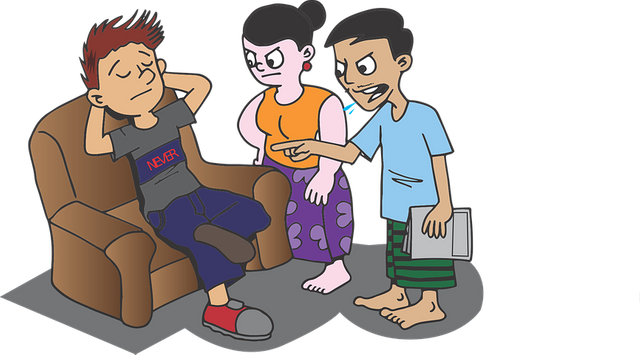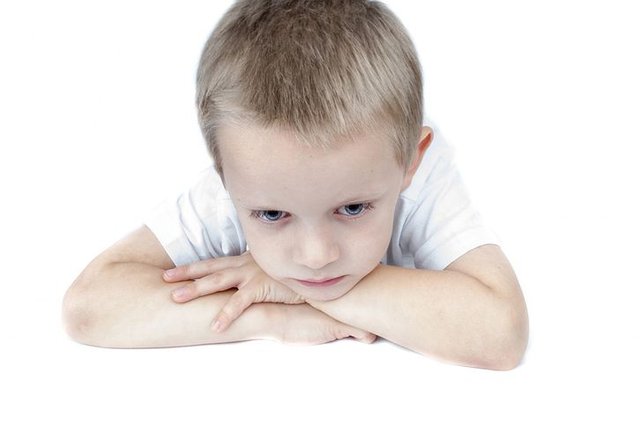In Parenting — Controlling Quarrels and Lies among Children
The moment a baby comes into the world, he becomes the centre of his family’s attention. Everyone is anxious to wait on him and fulfil his every wish. After a year or two of this, he naturally grows accustomed to getting almost anything he wants. But just about this time, his whole world suddenly changes. Perhaps another baby has arrived, or he realises he is only one of several children in the family. Is it any wonder that he resents this sudden intrusion into what he believed was his own private world?
Unfortunately, some parents are foolish enough to play favourites, giving one child more attention than another. Family rivalry is the natural result, and soon no one is happy. Certainly a wise parent will avoid this kind of thing.
If there is one thing children desire more than anything else, it is fairness and equality. Children hate favouritism, either in school or at home. Every child deserves a fair deal, regardless of his age, and certainly each child deserves the attention and constant love of his parents.
HOW QUARRELS START

Image source: Pixabay
Why do children quarrel? Numerous reasons might be mentioned, but the central one is that children always find it difficult to think of others first. They are so anxious to succeed that they just want to have everything to themselves. How does one solve this problem?
One mother with two growing boys found a good way to do this and at the same time to teach a valuable lesson.
Whenever she baked or bought a cake, each of the boys would fight for the largest share. One day when they were quarreling over how large a slice they would have, she allowed the older boy to cut the cake and then told the younger one he could take the first choice! It was a lesson they never forgot. Because of a sensible mother, they soon learned to be fair to each other and to the rest of the family as well.
Suppose you see one child hurting another, what should you do? Step in and hit him back? Better be careful. It is so easy for children to misunderstand the actions of adults. Most active children can take care of themselves fairly well. Perhaps the youngster just needs to let off a little steam. Usually, it is wiser just to watch and make sure nothing serious is happening.
However, if one child persists in hurting another, you may have to step in and protect the other child. A cruel, bullying youngster will never grow up into a mature person unless he learns to respect the rights and feelings of others.

Image source: Pixabay
Even for his own peace of mind, the boisterous child must be prevented from harming other people. Deep within himself he knows this is true. A wise parent will seek to control him in a kind, sensible way. Scolding and punishing him may only increase his feeling of guilt and drive him into further misconduct. So, keep your head in dealing with this child. Do not become angry, for this will only deepen the problem. There are times when it may be better to separate him from the other children for a while. This will give him an opportunity to cool down. Just tell him, “You are not ready to play with other children just now. You are too excited. When you feel better, you can go back, but not yet.”
If children quarrel over a certain toy, it is best to put it away so that it cannot be used for some time. They will then realize that anger and quarreling are decidedly unprofitable, and they may even help each other to avoid such unpopular mistakes.
PREVENTING QUARRELS
Many serious quarrels can be prevented if parents are wise enough to see them coming in advance. Suggest some other activity to take the minds of the children off their injured feelings. This will help to avoid misunderstandings between the children, and perhaps between some of the neighbours as well!
If your boy gets too wild in his play, sit him down and tell him a quiet story. This may save you many hours of trying to repair the damage later on. An energetic child needs plenty of outdoor space in which to play and move around freely. Show him how to play fairly and how to get along with others. Don’t nag or scold him, but try to be patient with him. Child training takes time, but if you are kind and considerate, he will eventually grow up, and you will be proud of him.
WHY CHILDREN TELL LIES

Image source: Pixabay
All young children are blessed with vivid imaginations. They never really know the difference between truth and fantasy. Hence it is often difficult for them to think and reason correctly.
There is a great difference between the mind of a child and that of an adult. Parents should not be too troubled by the “tall tales” of a child so young he cannot really tell the difference between fact and fantasy. Actually, the child may be telling the truth — as he sees it. However, a wise parent will always investigate the problem for himself, particularly if the child is repeating something he heard or saw at some neighbour’s house. His imagination may be working overtime!
Children are not alone in this. Go into any court of law and listen to the different kinds of testimony given by several people, all of whom witnessed the same event. These witnesses may be strictly honest, even though their stories are different. But the judge knows that even the most impartial observer always tends to see things from his own point of view. Can we blame the child for doing this too? In a moment I will mention how to handle the lie problem. It is often related to inferiority feelings.
FEELINGS OF INFERIORITY

Image source: Pixabay
Some children make friends easily, others are less fortunate. Many times they unconsciously antagonize their playmates. Because they are unpopular, they soon begin to feel inferior. Such a child may then assume a superior attitude, criticising others and distorting the truth. He needs help in overcoming his personality problems.
When an older child tells lies, he may be trying to protect himself from unfair criticism in school or at home. Perhaps his grades in school are not as good as they should be. Yet, later in life, he may prove far more successful than the other child whose grades are so high just now.
HOW SHOULD YOU HANDLE SUCH A PROBLEM?
First of all, by improving your relationships within the family. Try to help the child to understand the difference between right and wrong. Did he really mean to deceive, or is this a passing phase that he will outgrow before long? By all means try to avoid misunderstandings and unfair criticism on your own part. Be sure to set a good example of honesty in your life. Above all, let him know that you appreciate all the many good things he does. Then with proper guidance, he will learn to live by high standards and will follow them for the rest of his life.
Thanks for reading....


STEEMBULLS


STEEMBULLS
Go here https://steemit.com/@a-a-a to get your post resteemed to over 72,000 followers.
Hi! This is jlk.news intelligent bot. I just upvoted your post based on my criteria for quality. Keep on writing nice posts on Steemit and follow me @jlkreiss to get premium world news updates round the clock! 🦄🦄🦄
Favoritism is the number one cause of quarrel among siblings... I love your posts, hope you follow me back
Kindly use #steemiteducation for posts like this
Thanks @dante31. It's done!
good writer👍
Thank you!